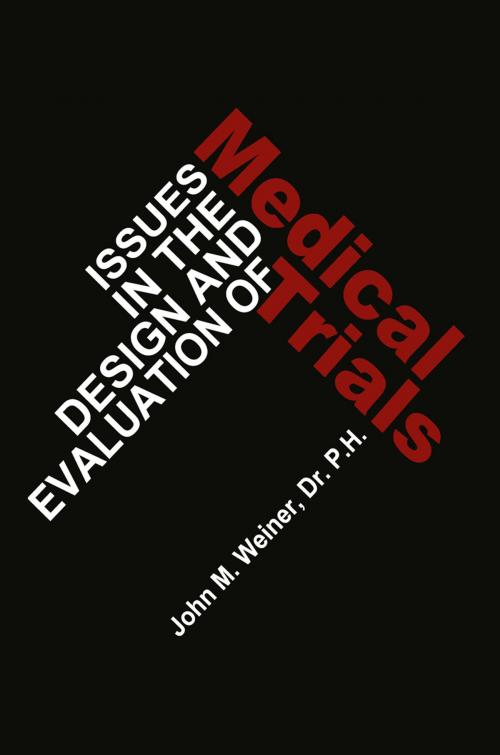Issues in the Design and Evaluation of Medical Trials
Nonfiction, Health & Well Being, Medical, Specialties, Internal Medicine, General| Author: | J.W. Weiner | ISBN: | 9789400988811 |
| Publisher: | Springer Netherlands | Publication: | December 6, 2012 |
| Imprint: | Springer | Language: | English |
| Author: | J.W. Weiner |
| ISBN: | 9789400988811 |
| Publisher: | Springer Netherlands |
| Publication: | December 6, 2012 |
| Imprint: | Springer |
| Language: | English |
Clinical research represents an integration of many procedures from the social, biological, and natural sciences. Critical examination of the spectrum of medical inquiries will reveal the full gamut of research activities. Under standing the processes involved in the integration of these investigative and cognitive functions may lead to further advances in creative behavior. The purpose of this book is to formalize this process by identifying, collecting, and organizing the elements and issues involved. During the past thirty years, there have been significant advances in research methodology, many of them stimulated by multi-disciplinary collabo ration. The anticipated barriers to communication were not realized in prac tice. Scientists engaged in mutual problem-solving could accomplish more than their colleagues working in relative isolation. In the,r productive fashion, these multi-disciplinary teams, by pooling their knowledge sets and by devel oping communication mechanisms, created the interfaces between the clini cal, analytical, and communication sciences. These interfaces, while neither complete nor perfect, represent the methodology of interest in accomplishing the capture, evaluation, and utilization of information, or Information Process ing. The list of contributors to this methodology is virtually endless and we acknowledge their enormous and significant efforts.
Clinical research represents an integration of many procedures from the social, biological, and natural sciences. Critical examination of the spectrum of medical inquiries will reveal the full gamut of research activities. Under standing the processes involved in the integration of these investigative and cognitive functions may lead to further advances in creative behavior. The purpose of this book is to formalize this process by identifying, collecting, and organizing the elements and issues involved. During the past thirty years, there have been significant advances in research methodology, many of them stimulated by multi-disciplinary collabo ration. The anticipated barriers to communication were not realized in prac tice. Scientists engaged in mutual problem-solving could accomplish more than their colleagues working in relative isolation. In the,r productive fashion, these multi-disciplinary teams, by pooling their knowledge sets and by devel oping communication mechanisms, created the interfaces between the clini cal, analytical, and communication sciences. These interfaces, while neither complete nor perfect, represent the methodology of interest in accomplishing the capture, evaluation, and utilization of information, or Information Process ing. The list of contributors to this methodology is virtually endless and we acknowledge their enormous and significant efforts.















